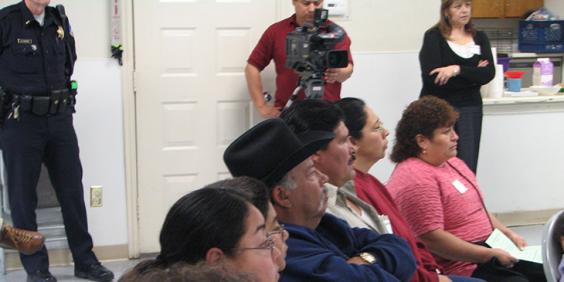Santa Cruz County Coalition Addresses Underage Drinking

To address concerns about underage drinking and college parties in Santa Cruz, the Together for Youth coalition pursued a social host ordinance. The collaborative, formed to address high rates of alcohol use among the county’s high school students as well as large, disruptive college parties in western Santa Cruz, felt a social host ordinance would best support efforts to reduce large gatherings and hold party hosts accountable for underage drinkers’ consumption.
One of the coalition’s first challenges was building support in a community that did not perceive underage drinking as a problem. “The community didn’t buy into underage drinking as an issue. What they did buy into was that we had a major binge drinking problem, which they thought was dangerous,” said Brenda Armstrong, prevention program manager, Santa Cruz County.
Using a Drug Free Communities grant, the coalition began a focused effort to build understanding of what high risk drinking looks like and connect it to circumstances in Santa Cruz. After conducting interviews or surveys with almost 500 community members, the coalition was able to show local policy makers that there was a problem with binge and underage drinking and, importantly, demonstrate that their constituents wanted something done about it.
With data in hand, the coalition partnered with neighbors, landlords, law enforcement, youth organizations, the University of Santa Cruz (USC), and others to pursue social host ordinances in all the county’s jurisdictions. The City of Santa Cruz was first to implement an ordinance, building and expanding on its existing noise ordinances.
To launch the ordinance, Together for Youth and other coalition members went door to door, sharing information in hotspot neighborhoods and handing out educational materials, including USC-sponsored Red Cup brochures. USC also worked internally to make sure students knew about the ordinance. The student housing organization educated students on their new responsibility for fines accrued from social hosting violations. Students are now asked to sign pledges to abide by the ordinance; this information is available to landlords, who are legally allowed to reject students who have not signed a pledge. An attorney also helped landlords craft lease clauses holding renters responsible for any fines and fees from violations.
Enforcement and communication remain crucial to ongoing success. Every year, Santa Cruz Neighbors, a non-profit organization representing city neighborhoods, hosts neighborhood block parties to help educate incoming student renters about the social host ordinance and connect them to the neighborhoods’ permanent residents. These efforts help neighbors and students reach compromises if problems arise and help ensure a good start to the year. According to Armstrong, “If there is strong enforcement in the first 3-6 weeks of the school year, things quiet down for months with far fewer parties and complaints.”
As other jurisdictions saw results from the City of Santa Cruz’s ordinance -- fewer huge drinking parties and happier neighborhoods -- they adopted their own ordinances. The ordinances in all jurisdictions involve civil penalties, rather than criminal, and include fines and cost response fees to make sure law enforcement is reimbursed appropriately. “This is really key in order to provide the resources for law enforcement to implement and make it sustainable,” noted Armstrong.
It took a little over two years from the first education efforts to ordinance adoption across the county. “It gels when it’s ready to gel,” Armstrong said. “You have this collective mass running in parallel directions and eventually it all just comes together.”
To learn more, visit http://www.communitypreventionpartners.com/ or contact Brenda Armstrong, prevention program manager, Santa Cruz County Health Services Agency at (831) 454-5483 or [email protected], or Megan Joseph, director of community organizing, United Way of Santa Cruz County at (831) 465-2207 or [email protected].
Communities in Action provide examples of strategies or tools in action. Their purpose is to connect like-minded communities in their implementation efforts, giving insight into how others are tackling key challenges and what they've accomplished. To learn more about the evidence supporting this strategy's effectiveness or resources to help move towards implementation, see the What Works for Health summary of Social host laws.
Date added: December 3, 2014
